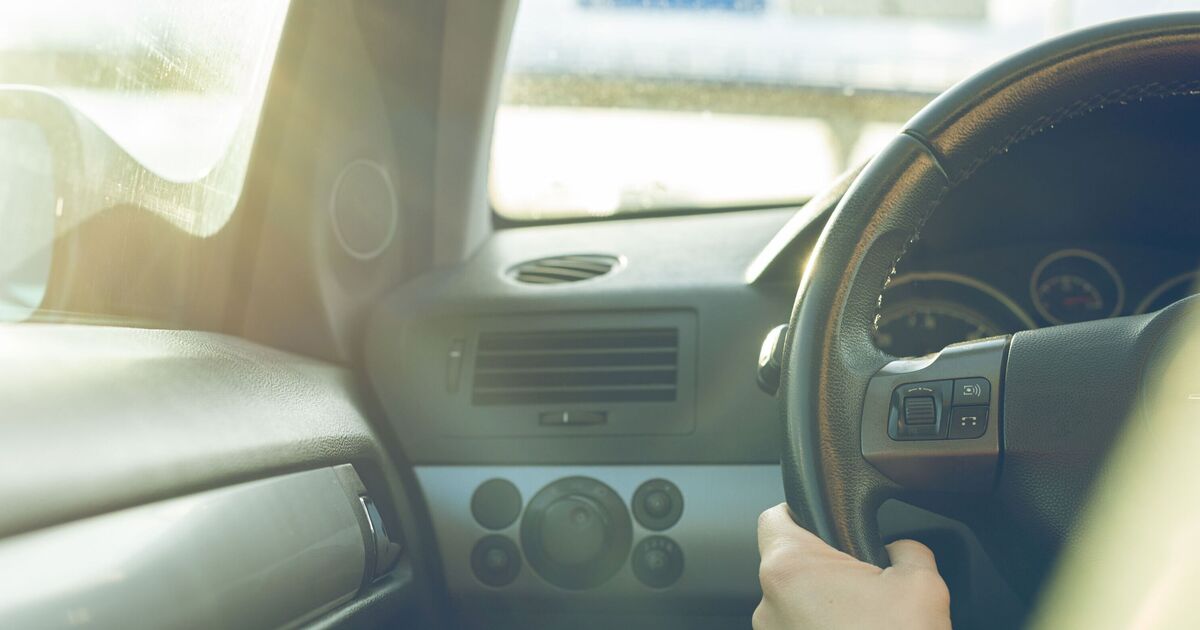The average cost of motor insurance for all drivers is up by £106 on a year ago, it has emerged. The figure has jumped to £882, according to data from price comparison experts at confused.com.
At the same time, the average figure for an 18-year-old has leapt £556 to £2,960, which will drive many off the road.
Motorists are continuing to suffer punishing rises in the cost of insurance – with some young drivers now paying almost £4,500 a year.
Experts are warning that much of the reason for the steep rise in car insurance is down to cars holding their value for longer as they urged people to take steps to avoid paying more than they have to.
In theory, insurance companies are prevented from basing premiums on gender. However the figures show that male drivers generally pay more.
The latest data shows how the average price for men is now £939 versus £786 for women – a gender price gap of £153.
Inner London tends to be the most expensive region in the UK following an average annual rise of £147 to £1,404.
Young male drivers – aged 17-20 – central London face the highest premiums in the country. The average figure is up £519 in a year to an eye-watering £4,480.
Females of the same age group in this area could be paying £3,590, on average, following a £473 annual increase.
The West Midlands is the most expensive region outside the capital with average prices now £1,082, following a £142 increase year-on-year.
Complete regional insurance pricing data
Region | Average premium | Annual change (£) | Annual change (%) | Quaterly change (£) | Quarterly change (%) |
London – Inner | £1,404 | £147 | 12% | -£97 | -6% |
Manchester / Merseyside | £1,064 | £99 | 10% | -£87 | -8% |
London – Outer | £1,147 | £144 | 14% | -£73 | -6% |
Midlands – West | £1,082 | £142 | 15% | -£75 | -6% |
Leeds / Sheffield | £999 | £119 | 14% | -£75 | -7% |
Northern Ireland | £925 | £104 | 13% | -£43 | -4% |
Midlands – East | £868 | £108 | 14% | -£61 | -7% |
North West | £819 | £83 | 11% | -£74 | -8% |
South Central | £843 | £98 | 13% | -£56 | -6% |
Midlands – North | £802 | £94 | 13% | -£57 | -7% |
North East | £761 | £89 | 13% | -£51 | -6% |
North | £755 | £103 | 16% | -£43 | -5% |
Scotland – Central | £820 | £129 | 19% | -£51 | -6% |
South East | £752 | £102 | 16% | -£46 | -6% |
East | £748 | £98 | 15% | -£48 | -6% |
Wales – South | £686 | £73 | 12% | -£48 | -6% |
South | £689 | £84 | 14% | -£41 | -6% |
West | £662 | £81 | 14% | -£39 | -6% |
Scotland – East & NE | £664 | £94 | 17% | -£37 | -5% |
Scotland – Highlands & Islands | £637 | £77 | 14% | -£37 | -6% |
Wales – Central & North | £578 | £55 | 11% | -£46 | -7% |
South West | £571 | £62 | 12% | -£35 | -6% |
Scotland – Borders | £595 | £83 | 16% | -£39 | -6% |
Confused.com said: “There’s no denying that the cost of car insurance is still unaffordable for many drivers.
“In fact, the latest data shows how drivers aren’t likely to see their car insurance price fall under £1,000 until they hit 38. But it’s younger drivers who continuously face the toughest changes.”
Drivers in Central Scotland are likely to have seen the biggest jumps in percentage terms in the past 12 months. On average, prices are up 19 percent (£129) to £820.
There has been an average 16 percent (£103) rise in the North of England to £755.
Insurance companies claim the high premiums are largely due to the fact cars – whether new or old – are continuing to hold their value for longer.
This means if a driver makes a claim, then insurers are having to pay out more than they usually would. Parts are also more expensive, especially for newer more sophisticated cars. At the same time, there has been a rise in labour costs.
Customers renewing their car insurance with the same company could be bearing the brunt of steep increases. Some 68 percent of those who renewed between April and June saw an average rise of £92.
Louise Thomas, car insurance expert at Confused.com, said: “Car insurance prices have been a huge burden for drivers for some time. And even though they are starting to drop, chances are you will still be paying more now than compared to last year.
“There are lots of tips and tricks every driver can do to help bring costs down further. Being accurate with mileage and considering a higher voluntary excess, if you can afford to, could help. And although not a financial option for everyone, paying annually for your cover instead of monthly will mean you’re not having to pay interest charges on top.
“But my biggest piece of advice is to never accept your insurer’s renewal quote, without looking elsewhere first. That’s why price comparison sites are a great way to check whether you’re getting the best deal.”
How to minimise cost of insurance
- Use a price comparison site – when it comes to keeping costs down, the best thing you can do is compare prices. That way you can ensure you’re getting the best deal to suit your needs and not paying more than you need to. And it’s likely that you can make a saving.
- Pay for your car insurance annually – if you can afford it, pay for your insurance in one go rather than monthly. That’s because insurance companies often charge interest for spreading the cost of your cover over the year.
- Increase your voluntary excess – increasing your voluntary excess can help you get cheaper car insurance. But you need to make sure you can afford to pay it, if you need to claim.
- Be accurate with mileage – generally, the more miles you drive, the more likely you are to have an accident and make a claim. This means the higher your mileage, the more you pay for your car insurance. So, driving fewer miles can be a great way to save money on your car insurance policy. But don’t assume that a low mileage always means low prices. If you barely drive at all, your insurance company could see that as a risk as well.
- Enhance your car security – the harder it is to steal your car, the less of a risk it is. This usually means cheaper car insurance.
- There are several ways to improve your car security, including: installing a Thatcham-approved car alarm or immobiliser, if it doesn’t already have one – or adding secondary levels of security, like a steering lock
- Parking overnight in a secure, well-lit car park, or at home in a garage or driveway, if possible








Leave a comment